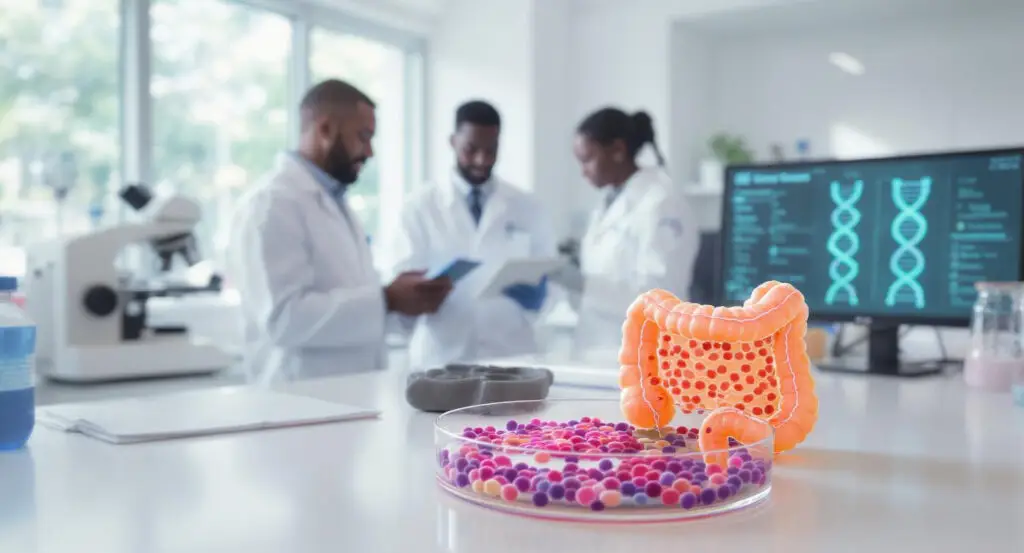For the first time, researchers from the University of Tokyo have successfully employed a specialized form of artificial intelligence, known as a Bayesian neural network, to analyze a vast dataset on gut bacteria. This groundbreaking application allowed them to identify intricate relationships that conventional analytical tools had previously struggled to reliably detect. The human body, while comprising trillions of its own cells, hosts an even greater number of gut bacteria, estimated at around 100 trillion, making their role in health a critical area of study.
Understanding the Bacteria-Metabolite Connection
Project Researcher Tung Dang from the Tsunoda lab in the Department of Biological Sciences highlights the current challenge in fully comprehending these microbial communities. As published in Briefings in Bioinformatics, Dang noted, “The problem is that we’re only beginning to understand which bacteria produce which human metabolites and how these relationships change in different diseases.” Accurately mapping these complex bacteria-chemical relationships holds immense potential for developing highly personalized treatments, opening doors to novel therapeutic strategies.
Vision for Personalized Treatments
Dang envisions a future where this newfound understanding can directly translate into innovative medical interventions. He states, “Imagine being able to grow a specific bacterium to produce beneficial human metabolites or designing targeted therapies that modify these metabolites to treat diseases.” This vision emphasizes the potential for precision medicine, where treatments are tailored not just to the individual, but to the unique microbial ecosystem within their gut, leading to more effective and targeted health solutions.
VBayesMM: A Smart Tool for Microbial Analysis
The AI system developed by the researchers, named VBayesMM, offers a sophisticated approach to microbial analysis. It automatically identifies the key players, microbes that significantly influence metabolites, from the vast background of less relevant microorganisms. Crucially, VBayesMM also acknowledges and communicates uncertainty about its predicted relationships, a vital feature that provides researchers with greater confidence compared to tools that might offer overconfident but potentially inaccurate answers. This built-in uncertainty handling makes it a more reliable tool for complex biological data.
Outperforming Existing Methods in Real-World Studies
When rigorously tested on real-world data derived from studies on sleep disorders, obesity, and various cancers, VBayesMM consistently demonstrated superior performance compared to existing analytical methods. Dang explained that their approach successfully identified specific bacterial families that align with known biological processes. This alignment with established biological understanding provides strong confidence that the system is indeed discovering genuine biological relationships rather than merely identifying meaningless statistical patterns, validating its effectiveness in complex health research.
Addressing Computational Challenges for Broader Access
While VBayesMM is optimized to manage heavy analytical workloads, mining such immense datasets still incurs a high computational cost. However, the researchers anticipate that this barrier will progressively diminish over time as computational power becomes more accessible and efficient. The system’s ability to handle and communicate issues of uncertainty provides researchers with a higher degree of confidence in its findings, making it a valuable tool even with current computational demands.
Future Directions: Comprehensive Chemical Datasets
Project Researcher Tung Dang outlined plans for future research. He stated, “We plan to work with more comprehensive chemical datasets that capture the complete range of bacterial products.” This next step, however, introduces new challenges, particularly in accurately determining whether specific chemicals originate from bacteria, the human body itself, or external sources such as dietary intake. Overcoming these complexities will be crucial for further refining the understanding of the intricate interplay between gut microbes and human health.























